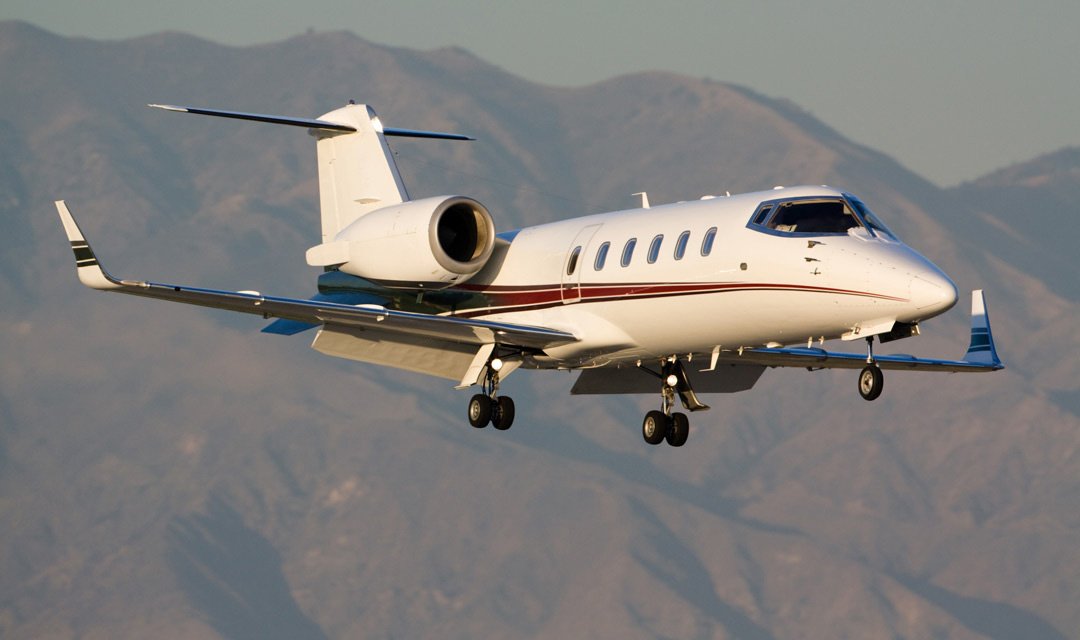Does Medical Repatriation UK provide long-distance patient transport?
Reading Time: 5 minutes
Table of contents
It can be difficult for a patient to know which option is best for them and their health when they require medical transport. Which one of the air or ground transportation options is the most efficient way of getting them where they need to go? If they opt for air transportation, should they fly commercially or charter a private medical aircraft? Contact the air ambulance experts at Medical Repatriation UK whenever you or a loved one require long-distance patient transportation! We offer unrivalled medical repatriation and medevac services that are tailored to the specific medical needs of each patient. You can rely on our friendly and professional support team to manage the entire trip's logistics, making the process as easy as possible for you and your family during this trying time. But what exactly does a long-distance flight entail? Is it always a possibility? Do we provide this type of service? We dispel any doubts you may have about long-distance patient transport via our medical aircraft in this article.
What is long-distance patient transport?
Long-distance patient transport is a type of transportation service that assists patients in need of medical transportation. This type of service can be extremely beneficial for patients who require treatment that is not available in their local area or even for those who need to relocate closer to family to be cared for. While it may necessitate the use of a long-distance air ambulance, it can also imply commercial airline travel accompanied by an experienced medical escort, as long as the patient's health allows it.
Nonetheless, long-distance patient transport by air ambulance is significantly faster than any other mode of long-distance medical transportation, including a ground ambulance. This medical transportation option also ensures that patients travel safely in comparison to commercial air travel. This is especially important if the patient needs to arrive at their destination within a specific time frame. However, the primary goal of using a long-distance air ambulance, or non-emergency aeromedical transport, remains to ensure that patients receive medical attention while traveling and arrive safely at their destination.
Did you know that? A medical flight is considered long-distance if it exceeds 320 kilometres

The value of long-distance patient transport by air ambulance
As an international air ambulance service provider, Medical Repatriation UK offers long-distance patient transport to a variety of clients and in a multitude of scenarios.
Seniors are frequently transferred to or from a healthcare facility, a nursing home, a cancer treatment centre or an assisted living facility via our air ambulances. They may also have been released from a hospital in a stable condition and simply need to return back home safely.
Long-distance medical transportation by air is used for a variety of other reasons. They are as follows:
- Seniors who are relocating to a new area;
- Senior travellers who are on vacation or visiting family;
- Tourists who are injured while on vacation and need to return back home;
- Travelers with a chronic condition or a disability that makes movement difficult;
- Patients who need to be transferred from one medical facility to another on opposite sides of the globe;
- Post-operative patients, wheelchair-bound patients, patients with stabilized bone fractures, dementia or Alzheimer's are also common medical conditions for long-distance patient transportation.
Medical conditions that prevent you from flying commercially (and how we ensure your safety)
It is so simple for many of us to hop on a plane and travel to a foreign country. However, if you have recently received medical treatment, this may be a different story. We strongly recommend that you consult with your doctor and your airline company before flying.
To further explain this last point, air travel exposes patients to a variety of factors that may have an adverse effect on their health. Indeed, certain medical conditions can have an impact on the comfort and, more importantly, the safety of air travel, especially if you plan to fly commercially without adequate medical assistance. Passengers with pre-existing medical conditions, those traveling with new-born babies or pregnant women should inquire about the potential risks of air travel and try to seek alternatives to make their trip safe and comfortable for themselves, other passengers, and the crew.
Other medical conditions include:
Recent surgical procedures
The type of surgery and the length of recovery time have an impact on your ability to travel commercially. To give you an idea, while you should be able to travel within a week or two after a minor surgery, more complex surgeries may necessitate a three-month wait before you can fly again. Long-distance scheduled flights should be avoided in these cases because they can cause dehydration and discomfort, and if the worst comes to the worst, restrict blood flow, potentially leading to DVT.
Our solution to ensure your safety: When booking one of our medical flights, our team will gather the necessary information about your medical condition and inquire about the nature of the surgery, when it was performed, and any medications you are taking. These details enable us to plan the ambulance flight and the medical team that will accompany you, as well as arrange for any equipment/medication you may require during the flight.
Deep Vein Thrombosis (DVT)
DVT affects about one in every 1,000 people in the UK. Your doctor will assess your specific circumstances and determine whether you are fit for a long-haul flight. However, it is recommended that you avoid flying if you have recently experienced a DVT. The NHS website has some useful information about preventing this condition while traveling.
Our solution to ensure your safety: In order to assess your suitability for a safe long-distance flight, our team will make certain that you are in good health and have the approval of your doctor before organizing your trip. Our medical professionals will be at your bedside, equipped with cutting-edge technology, to administer the necessary care, monitor your vitals, and intervene immediately should a complication arise during the flight.
Strokes
If you plan to fly commercially without proper medical assistance, and have recently suffered from a stroke or mini-stroke (Transient Ischemic Attack), you may be at an increased risk of developing Deep Vein Thrombosis and blood clots.

Our solution to ensure your safety: When you call, please provide us with the most recent medical documents, and whether you are receiving any specific treatment. You will, of course, receive the same medical attention as previously mentioned, and you may travel in a cabin with specifically regulated internal pressure to avoid any complications during your flight.
Chronic Obstructive Pulmonary Disease (COPD)
While flying, the air is pressurized, and this pressure varies depending on the size of the plane and the altitude at which it flies. If you have COPD, this can make breathing difficult, since the air is less oxygen-saturated. Many airlines advise against taking long-haul flights in such situations.
Our solution to ensure your safety: Acute respiratory problems hold no secrets for our team of specialist doctors and paramedics. Having access to your medical records will enable us to provide some specific equipment, such as oxygen concentrators.
An infectious disease
A Fit to Fly certificate may be required if you plan to fly after being diagnosed with an infectious disease such as influenza. Read your airline's policies carefully because they reserve the right to refuse travel. However, there is one situation in which airlines will undoubtedly not transport passengers. These are people who are infected with Covid-19 or show symptoms of it.
Our solution to ensure your safety: The questions we ask and steps we will take to organise your medical flight differ depending on the nature of the infectious disease you have had, but having the appropriate information and medications on hand is always useful. To clarify your doubts, if you have Coronavirus symptoms, we have the most advanced isolation technology and adhere to the most stringent protection and disinfection standards.
Some more benefits offered by Medical Repatriation UK include:
Long years of experience in air ambulance repatriation, helicopter repatriation and ground ambulance repatriation;
You can reach us 24 hours a day, even during weekends and on public holidays;
Immediate flight availability. We can arrange for your medical repatriation on the same or following day you make your reservation.
Any further questions?
We answer many of the questions on the topics of long-distance patient transfers in our FAQ section.
Contact us now for your long-distance patient transport!
If you need more information or a free non-binding quote, please contact our 24-hour service at any time. Our knowledgeable and helpful staff can be reached by:
- Telephone: +44 (0) 20 3608 0483
- Email: info@medical-repatriation.uk
- Our contact form